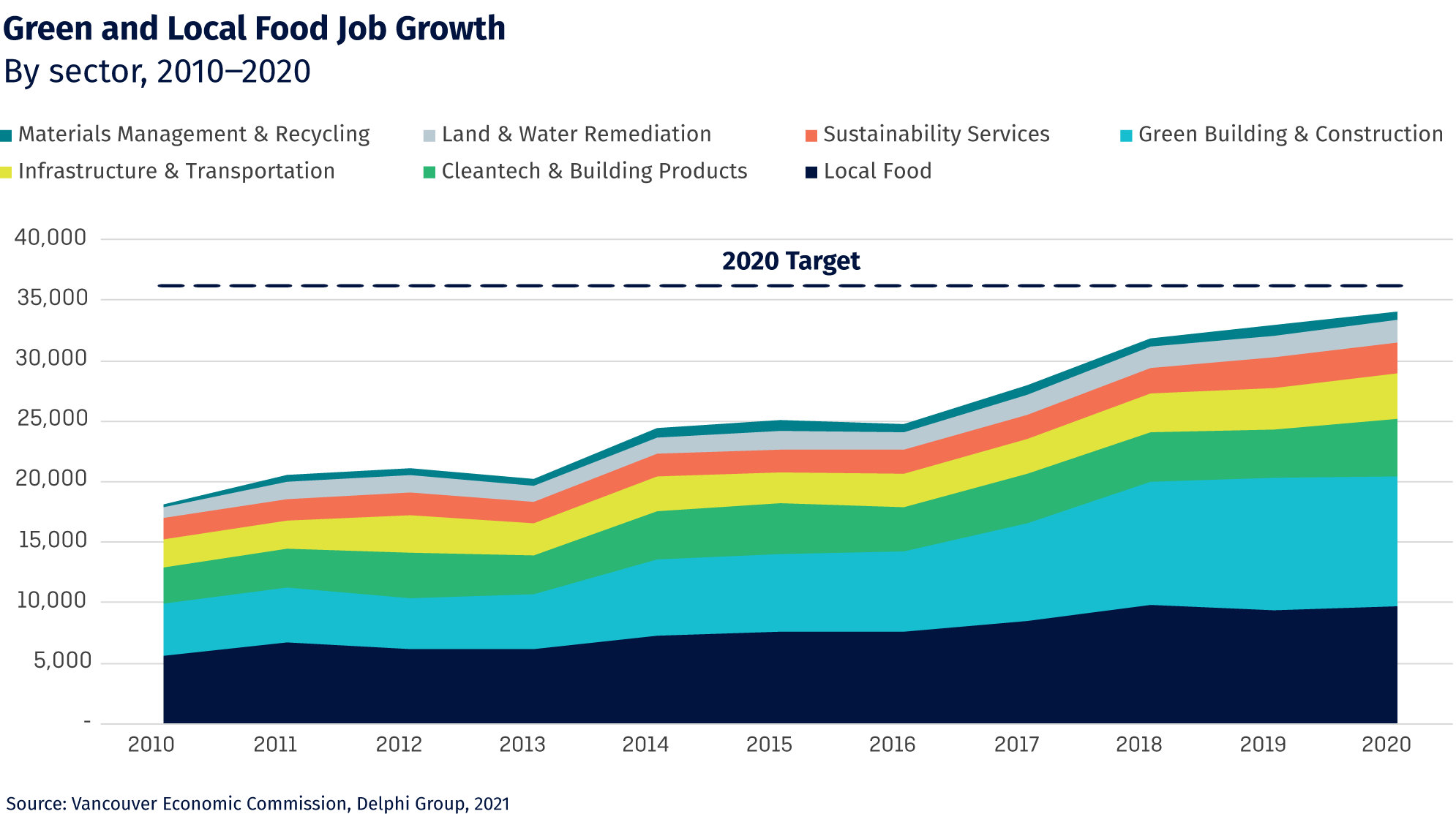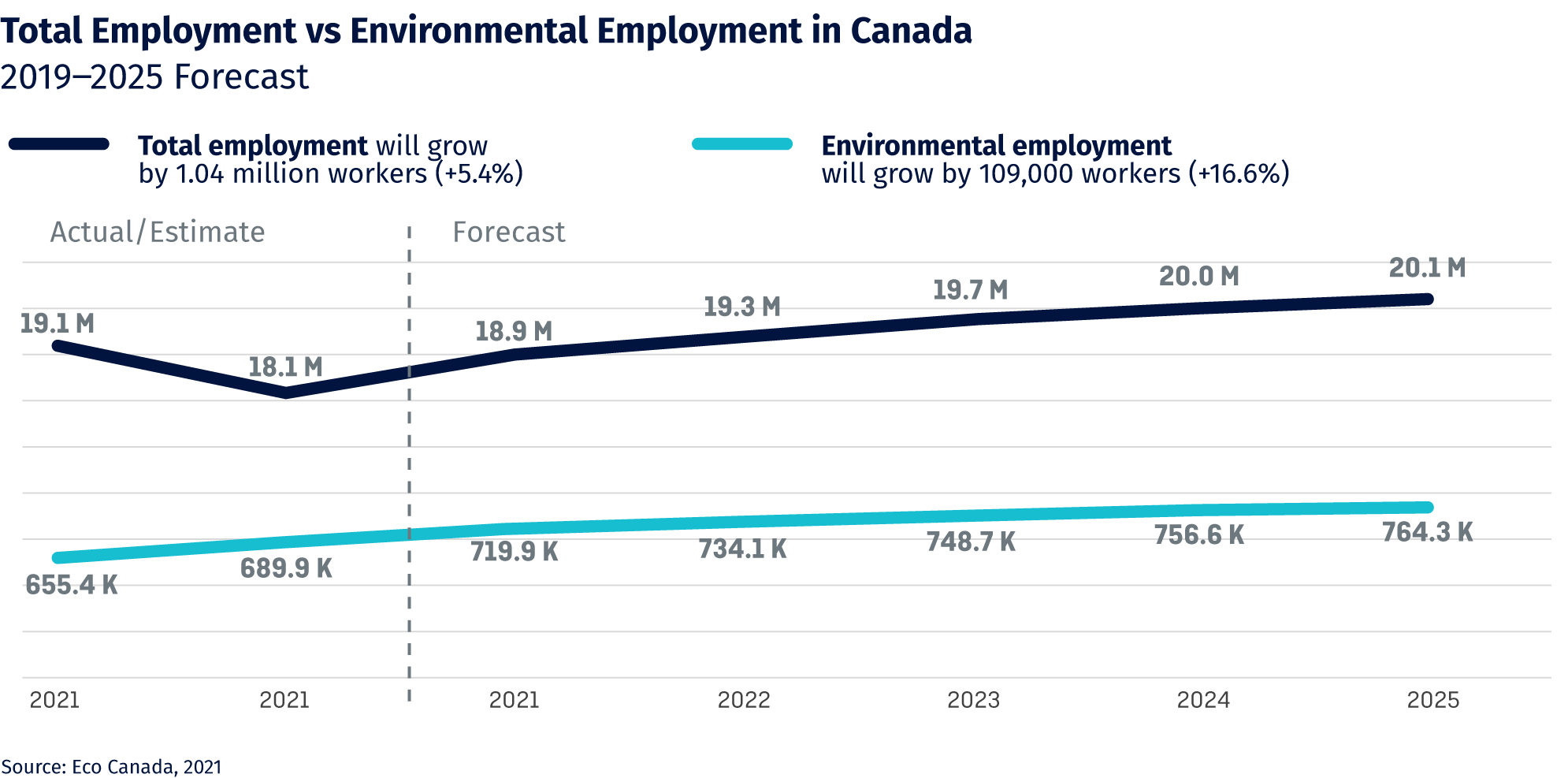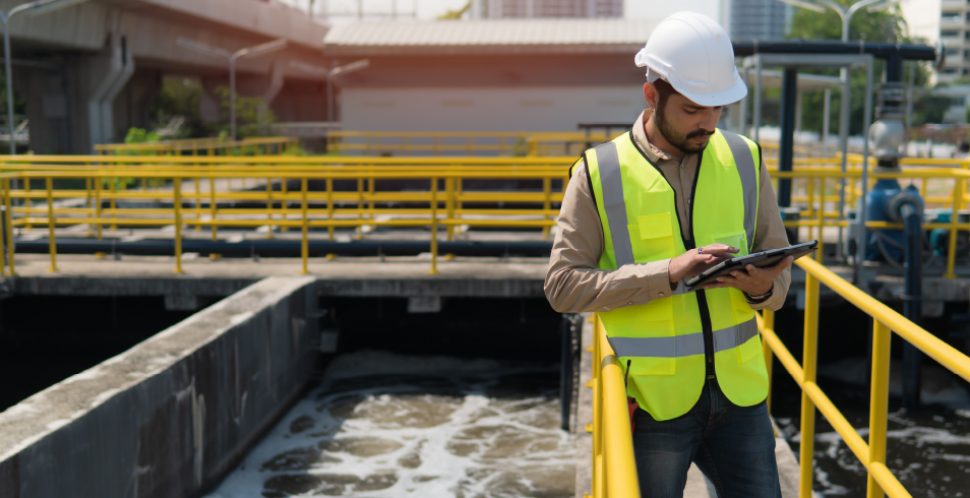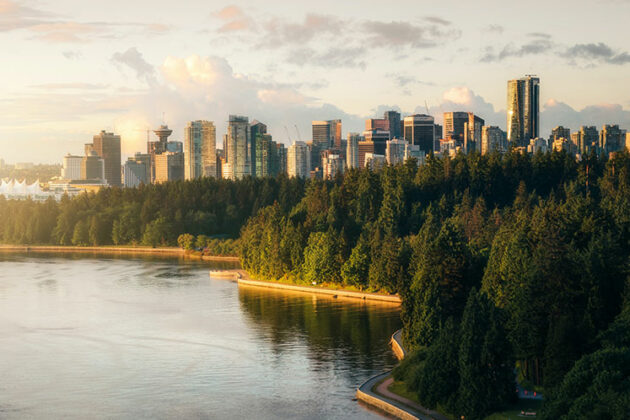Even as the economy slows, there are more job openings than ever
The hospitality industry one of Vancouver’s largest and most accessible employers, and according to the BC Restaurant and Foodservices Association, British Columbia’s sector is suffering a labour gap of 30,000-35,000 employees out of the 190,000 it expects to employ. In construction, British Columbia’s single largest employer by sector, the situation is even worse: shortages in the tens of thousands are worsening housing affordability, according to a 2022 CMHC study.
A growing green economy and more jobs than workers
One reason for the scarcity of workers in Vancouver is the growth of the green economy. In 2020, the Vancouver Economic Commission (VEC) released research as part of the City of Vancouver’s Greenest City Action Plan that showed 87% growth in the number of green jobs in Vancouver between 2011-2020, nearly reaching the City and VEC’s goal of doubling the number of green jobs during that time period.

But that’s just the beginning: starting at the beginning of 2020, the world has seen a massive increase in the number of companies and governments committed to climate action. Locally, the City of Vancouver’s Climate Emergency Action Plan (CEAP), Metro Vancouver’s Climate 2050, and the Province of British Columbia’s CleanBC are all driving significant changes in the local labour market. This is the underlying reason VEC is taking action on the just transition – to ensure every worker has not only a job, but a decent and inclusive one, on the other side of the transition to a net-zero economy.
What is “Decent Work?”
Decent work is defined by the International Labour Organization (ILO) as “productive work for women and men in conditions of freedom, equity, security and human dignity.” A job is decent when:
- it pays a fair income
- it guarantees a secure form of employment and safe working conditions
- it ensures equal opportunities and treatment for all
- it includes social protection for workers and their families
- it offers prospects for personal development and encourages social integration
- workers are free to express their concerns and to organize [into unions]
To learn more about decent work, visit the ILO website. To see how decent work relates to the just transition, see VEC’s 2021 report “Best Practices for a Just Transition in Vancouver”.
New green industries, like the cleantech sector or businesses working in the circular economy, and those amidst the transition to net zero, like freight or food, are also hungry for new workers. As policy and market action drive massive activity in the construction sector related to building decarbonization retrofits, or companies retool their fleets with electric vehicles, huge numbers of new workers will be needed in these areas, too.
VEC is working to develop an estimate of future green jobs in the region. For now, Eco Canada has studied the growth of the environmental workforce in Canada and, as of 2021, are forecasting 16% growth by 2025.

Good, green economy jobs
Workers in changing sectors need a just transition, and new workers as well as people from historically marginalized communities are eager to find good, green jobs. How can this happen?
VEC’s Zero Emissions Economic Transition Action Plan (ZEETAP) identified that further work needs to be done with employers, educators, and workers to connect dots, build or improve programming, and tell more effective stories about the potential of the green economy. For example, many businesses already offer green jobs – like an accounting firm that does carbon accounting, or a company that installs heat pumps – but may not be advertising themselves that way.
Green Economy Training: Key Findings
To try and connect these dots, VEC hosted a roundtable in December 2022 with industry, youth, think tanks, and educators to understand multiple perspectives on the current state of training and guidance for young workers in the green economy, and what’s needed to bridge the gaps.
Five key findings from the roundtable are:
- While Vancouver has seen widespread growth in green jobs, emerging roles such as a “reverse logistics” lead within a circular company are not currently being taught in schools or through career guidance programs, which limits the flow of applicants and forward-looking training.
- Technical skills are constantly changing as the economy evolves; therefore, soft skills and competencies must be key areas of focus to ensure people can be adaptable.
- Educators face many barriers related to resources, existing knowledge, and time, when it comes to being aware of, and preparing students for, potential green job opportunities.
- The transition towards net zero means many industries will be – or already are – full of green jobs opportunities (e.g. the construction sector). However, this is often not widely perceived by young or future workers, or the public at large.
- Transitions to include green economy training must include an equally strong focus on Indigenous knowledge, such as through two-eyed seeing, and a broader emphasis on issues of justice, equity, diversity, and inclusion.
VEC and partners are exploring ways that these findings can be carried forward in future training projects, coordination between industry and educators, and wider policy discussions on future changes to BC’s curriculum.
There are many potential solutions to these problems, but much of their successes or failures will focus on linking the industries and businesses driving forward climate action and the educators training workers just in, or about to enter, the workforce.
Keep Reading
- To learn more about the roundtable findings, refer to the summary of learnings
- Best Practices for a Just Transition in Vancouver
- VEC’s Zero Emissions Economic Transition Action Plan (ZEETAP)



